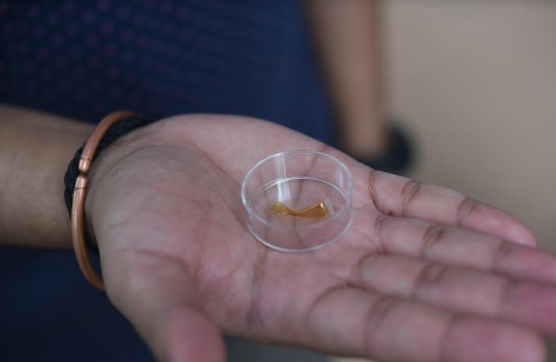
A thin, flexible gold sensor engineered at The University of Queensland (UQ), Australia has the potential to unlock the next generation of implantable medical devices.
Using a brand-new engineering method, researchers at UQ’s Australian Institute for Bioengineering and Nanotechnology (AIBN) were able to produce a small film-like sensor that is both flexible and sensitive enough to enable more streamlined future for electronic medical implants and real-time sensing applications.
The intricate approach used by Dr Mostafa Kamal Masud and PhD candidate Aditya Ashok represents a breakthrough in the field of flexible nanoarchitecture and, ultimately, suggests a new way to miniaturise and improve medical devices for diagnostics, biological sensing, and neurological exploration.
The film-like sensor represents a novel approach to the field of mesoporous materials, which are highly porous substances with traits that benefit diagnostics, catalysis, and drug delivery.
The flexibility and sensitivity of the gold film make it an ideal wearable system for real-time monitoring of body glucose, while Dr Masud said there was strong potential for implanted nerve recording applications.
“The demand for a simple and robust fabrication process with this kind of flexible electronics is enormous,” Dr Masud said.




